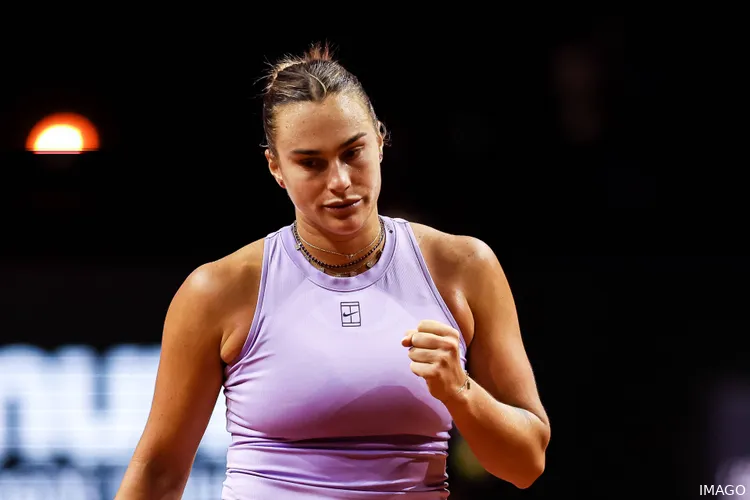Aryna Sabalenka, the world’s top-ranked women’s tennis player, has long been a fan favorite for her electrifying game and vibrant personality. Her powerful serves, aggressive baseline play, and three Grand Slam titles—including the 2023 and 2024 Australian Opens and the 2024 US Open—have cemented her as a dominant force on the WTA Tour. However, her post-match behavior following losses, particularly in finals, has sparked a growing controversy. After Sabalenka’s sarcastic remarks about her coaching team during the trophy ceremony at the 2025 Porsche Tennis Grand Prix in Stuttgart, former doubles No. 1 and Serena Williams’ ex-coach Rennae Stubbs expressed frustration, declaring she’s “really tired” of the Belarusian’s passive-aggressive humor. Stubbs’ critique has ignited a debate about sportsmanship, authenticity, and the pressures of elite competition.
The Stuttgart final was a bitter pill for Sabalenka, who fell 6-4, 6-1 to Jelena Ostapenko, marking her fourth consecutive runner-up finish at the event. As the top seed, Sabalenka entered the tournament fresh off a Miami Open title, with high hopes of finally claiming the coveted Porsche car awarded to the champion. Despite her disappointment, she took to the microphone with her trademark wit, jokingly chiding her team: “Every year, my team hoping to get the car, and we’re going to drive it in Miami. Not this year. So, no car for you guys. Ha ha. You’ll have to buy one.” While the crowd chuckled, Stubbs found the remarks grating, part of a recurring pattern seen in Sabalenka’s speeches after losses, including the 2025 Australian Open and Indian Wells finals against Madison Keys and Mirra Andreeva, respectively.
On her podcast, Stubbs didn’t mince words, criticizing Sabalenka’s tendency to target her team with sarcasm. “One thing I am getting a little bit tired of with Aryna, and listen, we all love the histrionics and the crazy in the speeches, but I am really tired of her going after her team when she loses with sarcasm,” she said. “I’m over it. When she loses it’s just like at this point, alright, stop telling your team hey guys great job today every time. It has gotten stale.” Stubbs argued that the comments, though intended as humor, come across as “passive aggressive and a little annoying,” urging Sabalenka to either genuinely thank her team or skip the remarks altogether. “You just got to thank your team or not, and stop giving them sh*t,” she added, noting that the attempts to laugh it off fall flat.
Sabalenka’s 2025 season has been a rollercoaster of triumphs and near-misses. Starting with a Brisbane International title, she reached five finals, winning two but falling short in Melbourne, Indian Wells, and Stuttgart. Her Stuttgart campaign was particularly dramatic, marked by a quarterfinal incident where she photographed a disputed clay-court mark with her phone after a tense exchange with umpire Miriam Bley. “I felt the referee was pissed by the picture I took,” Sabalenka said post-match, describing the umpire’s “strong handshake” as a memorable moment. Despite the loss to Ostapenko, her performance solidified her lead atop the WTA rankings, nearly 4,000 points ahead of Iga Swiatek, who faces pressure to defend points from last year’s clay season.
The criticism has sparked varied reactions. Some fans defend Sabalenka’s humor as a coping mechanism, pointing to her close bond with her team, including coach Anton Dubrov, who she’s vowed to work with for her entire career. “The criticism given by Sabalenka is definitely not genuine,” one supporter noted online, highlighting her lighthearted intent. Others, however, echo Stubbs’ sentiment, finding the jokes repetitive. The debate also touches on broader issues of gender and perception in tennis, with some pointing out that male players like Alexander Zverev, who smashed multiple rackets during the 2025 Australian Open, often face less scrutiny for emotional outbursts.
At 26, Sabalenka remains a polarizing yet captivating figure, her raw emotion both a strength and a lightning rod. Her ability to bounce back is well-documented—after losing the 2023 US Open final to Coco Gauff, she claimed the title in 2024. “I’m the one who knows that after tough losses, there is good wins,” she said after the Australian Open, vowing to return stronger. As she navigates the clay season, with the Madrid Open on the horizon, Sabalenka faces the challenge of balancing her fiery personality with the expectations of a world No. 1. Stubbs’ critique underscores the scrutiny that comes with stardom, where every word and action is magnified. Whether Sabalenka adjusts her post-loss rhetoric or doubles down on her humor, her journey continues to captivate, proving that in tennis, the drama off the court can be as compelling as the battles on it.

